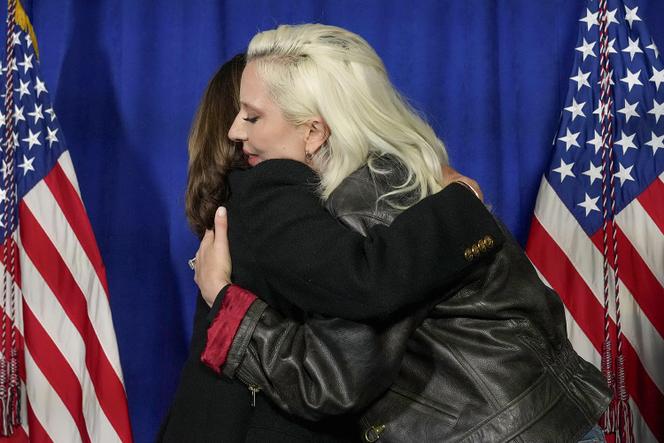


On the night of November 5, singer Cardi B filmed herself listening to Donald Trump's victory announcement. The video, posted on Instagram, featured the phrase: "I hate y'all bad." This rage was shared by many celebrities. In more chastened terms, actresses Jamie Lee Curtis and Viola Davis, writer Stephen King and singer Ariana Grande took to social media to express their sadness.
Kamala Harris's campaign had been punctuated by successive endorsements from American stars. The veterans of Democratic campaigns (Stevie Wonder, Barbra Streisand, Bruce Springsteen, Robert De Niro, George Clooney etc.) were joined by a new generation of artists, including singers Billie Eilish, Charli XCX, John Legend and Lady Gaga. The latter two even appeared on stage alongside the candidate.
For a time, the outcome of the electoral battle seemed to hinge on the support of two celebrities: Taylor Swift and Beyoncé. The former, extremely popular with young people, was expected to be a game-changer for the Democratic establishment. As for Beyoncé, a leading figure in the Black community, she was expected to consolidate the African-American vote, which was crucial to the campaign.
The party's strategists aimed to appeal to each electoral group by associating them with a unifying figure. For the Latino community, a key demographic, they enlisted two stars from different generations to reach a broad range of voters: actress and singer Jennifer Lopez, 55, and rapper Bad Bunny, 30, both born into Puerto Rican families.
Unfortunately, Trump won the election. "Proof that it wasn't enough," said Laurence Maslon, historian of popular music and lecturer at New York University's Tisch School of the Arts. "Now the question on everyone's mind is whether that support was productive or the other way around." Publicly, no celebrity has openly questioned their own actions. However, in recent days, the American press has been questioning the effectiveness of this electoral strategy, as it often does whenever the Democratic Party, traditionally supported by Hollywood, loses.
In 2008, TV host Oprah Winfrey's endorsement of Democratic outsider Barack Obama is estimated to have helped him secure an additional million votes. During the 2016 presidential election, however, it became clear that Hillary Clinton's associations with celebrities like Katy Perry, Madonna, Kim Kardashian, and Meryl Streep worked against her. These high-profile endorsements played into Trump's narrative as the anti-establishment candidate. Clinton’s celebrity supporters were seen as symbols of her disconnect from everyday Americans, leading her campaign to shift its approach. By 2020, Joe Biden urged the entertainment industry to keep a lower profile.
You have 46.44% of this article left to read. The rest is for subscribers only.
